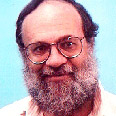
Brain drain threatens academic future
Latest Nobel Prize win does not represent reality in Israeli academia, people in the field say. Young talents moving abroad, fewer funds invested in research make prospect for future Nobel wins slimmer
The Nobel Prize won by Prof. Israel (Robert) Aumann of the Institute of Mathematics at the Hebrew University in Jerusalem made many Israelis proud, but this achievement does not reflect the grim realities of Israeli academia, experts say.
While universities abroad continuously develop more sophisticated programs and advanced curriculums and improve the financial packages they can offer their students, universities in Israel face ongoing budget cuts and a decrease in resources.
As a result of the brain drain that has followed, in the coming years Israel will find it more and more difficult to produce another Nobel laureate, local academic figures warn.
"The Nobel Prizes awarded today represent achievements of research initiated 30-40 years ago," Prof. Eyal Winter of the faculty of economics in the Hebrew University said.
"There used to be much more investment in research here. The young people who are finishing their doctorates now represent the potential for another Nobel in 10-20 years. The investment should go into them," Winter said.
Prof. Sergio Hart of the Hebrew University, who co-founded the Center for the Study of Rationality with Aumann, is very pessimistic. In the direction higher education has taken, there will be no higher education in the country 10 years from now, he said.
Hart says funding for new research students is inadequate, while senior lecturers are forced to teach in classes of 300 students, instead of 30-40. Moreover, Israeli universities cannot complete with the financial incentives offered by universities abroad, he said.
Accordingly, Hart called on the government to invest more resources in higher education today, in order to prevent young researchers from taking their talent and knowledge abroad.
"It is a fact that Israel has outstanding scientists. Financial conditions are not everything, and the scientific environment is important as well," he said. "We must try and create and environment that encourages and facilitates scientific research. Young people today see that they have nothing to do here."
Better prospects abroad
According to Prof. Winter, what distinguishes universities in Israel from their counterparts oversees is the lack of research infrastructure in the country, including research budgets, as well as labs and teaching conditions for both students and professors.

Prof. Aumann at Jerusalem press conference (Photo: Yaron Brenner)
To further illustrate the gravity of the situation in Israel, Winter described his impressions from a recent visit to Cornell university in the United States.
After he lecture at the university, a former student of his who now studies in Cornell invited him to join her for a Rosh Hashana dinner with other Israelis.
"I thought I was going to meet five or six Israelis, but I was amazed to find about 50 young Israelis in their thirties at the dinner. All of them were staff members at the university, or in the final stages of completing their dissertation, and all of them already had good job offers from leading universities in the U.S.," Winter said.
'I am not going back to Israel'
Ze'ev Arblet, a PhD economics student at NYU, said he has no intentions of returning to Israel. Arblet claimed universities in the United States nurture their students and allow them to work with the greatest minds in the field.
Even while he was still studying in Israel, his lecturers encouraged him to study abroad, he said.
"Israelis mostly go to the best universities. What is absurd is that they are accepted because they were taught in Israel by professors who were also educated in the U.S.," he said.
The young researcher has already decided he will not return to Israel when he completes his doctorate.
"I intend to settle down here… I am convinced I will be able to find a good job on Wall Street even if I don't continue in academia. The main reason is that it's easier to be accepted as a staff member in universities here, because there are just so many," he stated.
"How many people who study Game Theory are needed at Tel Aviv University?" he concluded.










